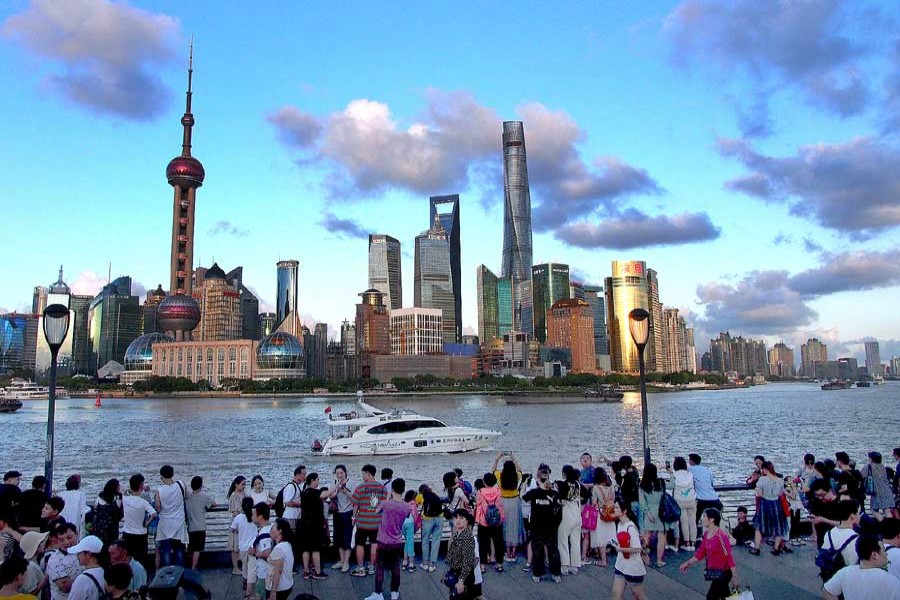A wealthier China is a boon to the United States, an economist has said, amid an escalating trade tensions between the two nations that has set the world's nerves on edge.
Donald Boudreaux, a senior fellow with George Mason University's Mercatus centre here and professor of economics of the school, told Xinhua in a recent interview that he is concerned about the consequences of the trade tensions, while calling for a correct conception of the mutually-beneficiary economic and trade relations between the world's largest two economies.
"The wealthier China becomes, the wealthier America becomes, which is the truth," said Boudreaux, adding that the White House and its trade advisors, however, don't see it that way and are ignorant of the economics of trade.
A wealthier China, he explained, means that more in China will be able to afford to buy American outputs and that China will be more productive and be able to supply the United States with valuable goods and services.
Boudreaux said that claims that there is fixed amount of wealth in the world, that China's growth comes at the expense of America's wealth, and that the United States loses by running a trade deficit with China are "wrong-headed."
"They see a wealthier, a prosperous China as a threat to America. They see free trade with the Chinese as beneficial for the Chinese, which it is, but harmful to Americans, which is not," he said. "These are misconceptions of the most grotesque sort but they are prevalent today in Washington."
In the latest move to escalate the trade tensions, the US Treasury designated China as a currency manipulator following the weakening of the Chinese currency beyond 7 yuan per US dollar earlier this week, a move dismissed by many pundits as ill-founded and politically-driven.
Boudreaux said he believes that part of the drop in the value of yuan is "due to the uncertainty that this escalating trade war has on the global economy," while pointing out that there is political calculation behind Washington's allegation that Beijing is manipulating its currency.
He noted that global supply chains, particularly in the past 20 years, have become "incredibly complex and interconnected," reflecting "the health of a global competitive entrepreneurial marketplace."
However, the White House has been disrupting the supply chains with its trade policies and approaches for the past two years or so, sending its trade relations with China into a tailspin because of several rounds of additional tariffs that it has imposed on Chinese imports.
"The most obvious thing that happens from an American's perspective is that our cost of living rises," he said. "We now don't get to enjoy the lower priced, higher quality goods and that we once bought from China. I have to pay a penalty imposed by our own government for purchasing those goods."
The economist said that he hasn't seen an end to the tensions as Washington has announced plans to impose additional 10-per cent tariffs on 300 billion US dollars worth of Chinese imports, which -- if followed through -- "will make things worse."
"The prices of our goods and services are rising. The prices of inputs are rising, (and) economic uncertainty is rising," said the economist, noting that it is shrinking the investment.
Boudreaux said that when investment shrinks, the productivity growth will be undermined, which ultimately leads to lower wages and decreasing living standards. "These are all the inevitable consequences of these tariffs and the trade war that they unleash."


